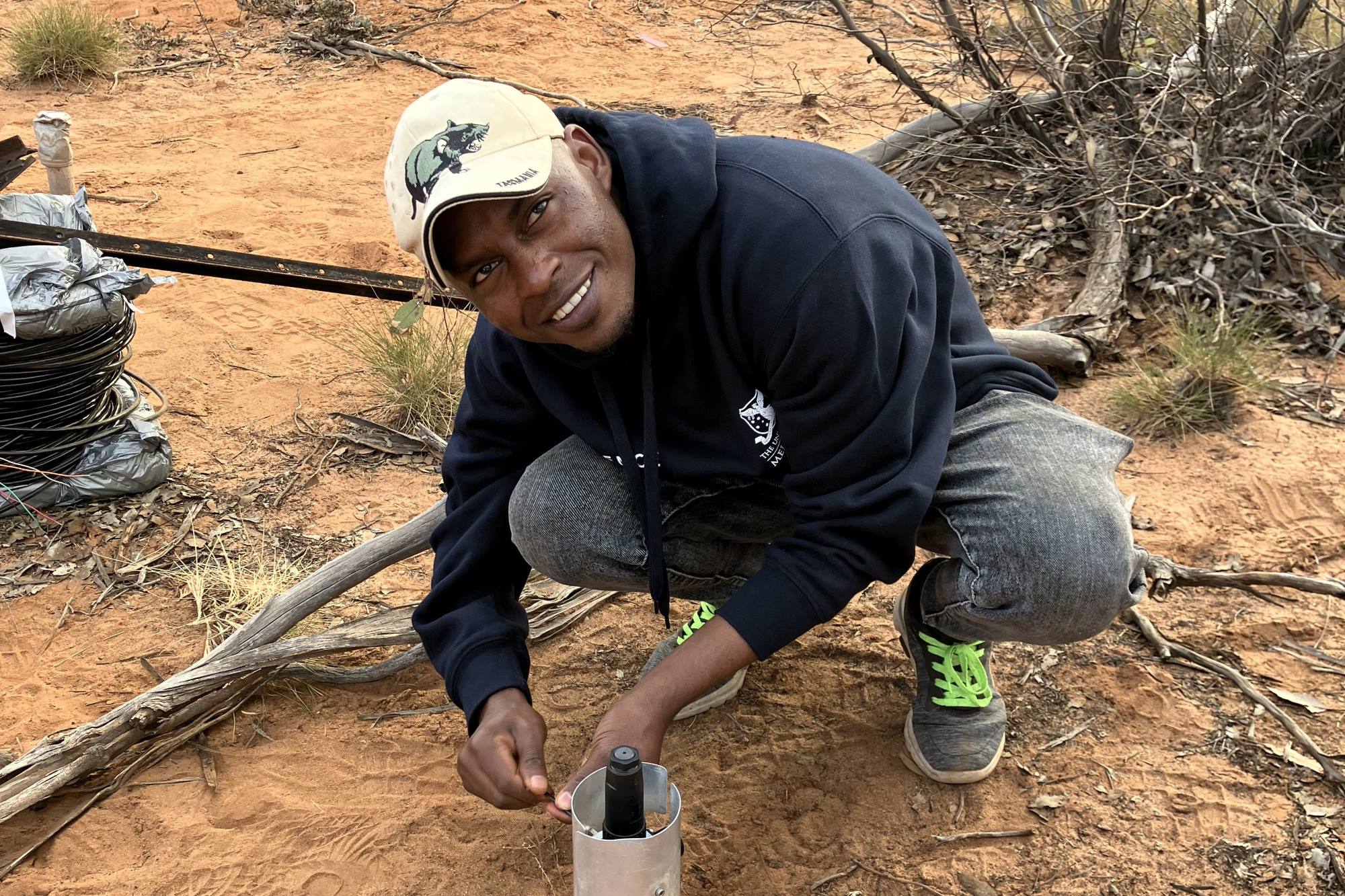Spotlight on a Researcher: Belay Gulte Mino
Investigating how low-temperature heat lying just below the Earth's surface in Gippsland, could be harnessed to supply constant energy to industry, while protecting nearby aquifers and the surrounding body of rock.

In simple terms, can you tell us what your research is about?
My research is focused on exploring how we might use low-temperature heat stored beneath the Earth's surface, as a clean and renewable energy source for industry.
I am doing research on how to quantify the low-grade geothermal energy resource in the onshore Gippsland Basin. To do this, I am building a 3D geological model of the basin to understand where the heat is, and how we can use it without negatively affecting the groundwater system in the aquifer, or surrounding body of rock.
OK, now give us the technical terms!
My research involves gathering legacy geological information from coal and petroleum boreholes into a regional 3D geological framework to map the extent of groundwater aquifers, aquitards and coal insulation. Temperature data will be integrated to model the thermal structure of the basin, identifying prospective geothermal aquifers and quantifying the heat available in them. Factors like porosity, permeability and crustal heat flow are all considered.
When the model is complete, I will investigate the effects of geothermal energy production on the aquifers. By developing this comprehensive model, I aim to optimise geothermal energy extraction while minimising its impact on the surrounding environment, as well as quantifying the value of geothermal energy, and perhaps gaining insights into groundwater movement along major fault systems.
Why did you choose this area of research? What interests you about it?
I chose this area of research because I am passionate about renewable energy and its potential to address global energy needs, sustainably, especially in my home country of Ethiopia.
Growing up in a rural area of Ethiopia, without reliable access to electricity, made me realise how important energy is for development and quality of life. Geothermal energy fascinates me because it’s a clean, constant (24/7) energy source that is very under-utilised.
Geothermal energy has enormous potential in Ethiopia. I am especially interested in understanding the balance between utilising this energy and preserving vital resources, such as groundwater. This intersection of science, technology and sustainability is what drives my curiosity and commitment to the field.
What did you study to get here?
I started with a bachelor's degree in geology at Arba Minch University, Ethiopia, which provided me with a solid foundation in earth sciences and an understanding of the geological processes shaping our planet. I then pursued a master’s degree in petroleum engineering at Kazan Federal University, Russia, which deepened my knowledge of energy extraction techniques and reservoir dynamics.
My transition from studying fossil fuels to renewable energy resources reflects a growing awareness of the environmental challenges we face today, particularly regarding climate change and CO2 emissions.
While fossil fuels have historically been dominant energy sources, their negative impacts on the environment, including global warming, underscore the urgent need for cleaner alternatives. By shifting my focus to renewable energy, I am contributing to the search for sustainable solutions that can help mitigate these pressing issues. This transition is not only necessary for reducing emissions, but also crucial for developing a more resilient energy future. My research in geothermal energy aligns with this goal, as it seeks to harness a clean, sustainable source of power while minimising environmental impacts.
Have you received any honours or awards for your work so far?
In 2023, I was selected for a fellowship at the University of Melbourne by the International Heat Flow Assessment team of the International Heat Flow Commission (IHFC), which maintains the Global Heat Flow Database. My work there served as a contribution to a recent publication titled ‘The Global Heat Flow Database: Release 2024’, which reflects the ongoing efforts to enhance the understanding of heat flow in geological contexts, and is vital for geothermal energy exploration on a global scale.
What’s the bigger picture? How will your work contribute to the transition to a clean energy system?
My work supports the transition to a clean energy system by promoting geothermal energy as a sustainable and reliable energy source, particularly by demonstrating its techno-economic viability. It aims to reduce greenhouse gas emissions associated with fossil fuels, while ensuring energy supply and the effective management of groundwater resources. By advancing geothermal resource understanding, I can foster innovation in energy solutions. Additionally, my research provides insights for policymakers and communities to encourage investment into renewable energy initiatives. Ultimately, this work helps drive a cleaner, more resilient energy future for generations to come.
When do you plan to complete your studies? And what do you want to do next?
I plan to complete my studies in 2027. After finishing my PhD, I aim to work in the renewable energy sector, primarily focusing on geothermal energy development and research. My goal is to contribute to projects that harness geothermal resources sustainably, while advising on policies that promote clean energy solutions. I am also interested in collaborating with academic institutions and industry partners to further my research and innovation in this field, playing an increasing role in the transition to a sustainable energy future.
Contact details
You can contact Belay via email or LinkedIn for more information about his research. He welcomes discussions about geothermal energy, sustainable practices, and any related topics.